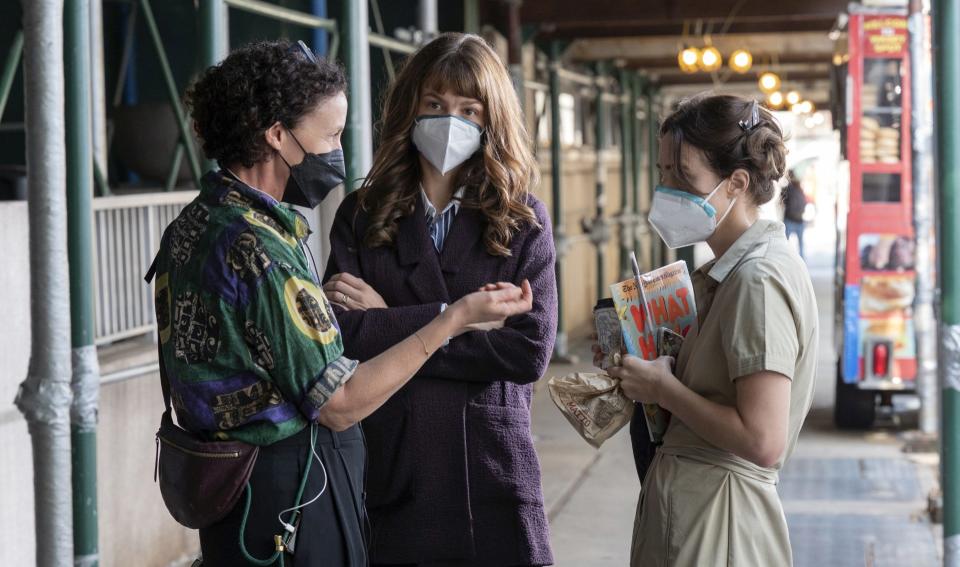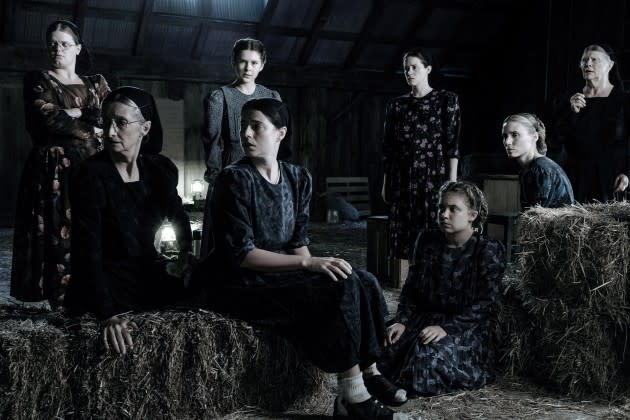
“Write what you know” — the age-old advice to aspiring writers has long been debated by distinguished wordsmiths and creative minds. Kazuo Ishiguro, writer of the 2022 British drama “Living,” has said the phrase “is the most stupid thing I’ve heard. … It’s the reverse of firing the imagination and potential of writers.” Does similar thinking still govern the studio heads who greenlight movies, the consumers who watch them and especially the awards voters who nominate them?
Maybe that explains why, in an industry dominated by white men, women are struggling to be recognized in the Oscars’ screenplay categories. While the Academy continues its pursuit of inclusion, women artists and filmmakers are still fighting to have their contributions seen. Multiple women may land in the directing race this year, but the screenplay categories are in dire need of improvement. In 2014, the year #OscarsSoWhite was born, none of the writing nominees in either category was a woman.
More from Variety
Of the 65 films nominated for original screenplay since 2009, only 11 had a woman attached as a writer. In adapted screenplay, 16 of the 65 nominees had a female writer. In 2014, the year #OscarsSoWhite was launched, none of the writing nominees in either category was a woman.
As the early precursors are handed out by critics, the top-tier contenders for original screenplay are tracking toward writer-directors such as the Daniels, Todd Field and Martin McDonagh. The best shots for a woman getting recognized are Charlotte Wells, director of independent beauty “Aftersun,” and Dana Stevens for “The Woman King.” If those films come up short, it could be the second straight year no original screenplay nominees will have a woman writer attached. Other possibilities — such as “Till” (from co-writer Chinonye Chukwu), “Nanny” (Nikyatu Jusu) and “Turning Red” (Domee Shi) — are considerable long shots.
In adapted screenplay, all hopes for women scribes are resting on writer-director Sarah Polley for “Women Talking,” which tells the story of a group of women who consider leaving their religious community after being raped. Polley, previously nominated in the category for “Away From Her” (2007), has been the leading contender since her drama debuted at Telluride, with only “Glass Onion” and “Living” looking to challenge.


Despite the dismal box office performance of “She Said,” which recounts the uncovering of Harvey Weinstein’s decades-long pattern of sexual abuse, Universal Pictures still has confidence in the viability of its scribe, Rebecca Lenkiewicz, finding love from the branch in adapted screenplay.
Although thrillers are not typical Academy fodder, Krysty Wilson-Cairns, who earned a nom for co-writing “1917” (2019), is in the conversation for adapted for Netflix’s “The Good Nurse.” Well-respected among her peers, she constructs a story about more than the crime saga it depicts, exploring themes surrounding health care and the fierce determination of an unsung heroine.
Lower-profile films with female writers, such as Lena Dunham (“Catherine Called Birdy”), Alice Birch (“The Wonder”) and Mia Goth (“Pearl”) could likely find various spots on the circuit with regional groups. But pending late-breaking buzz, they are not expected to make an impact.
Do you think the argument is overblown? In the 94 years of the Academy Awards, we’ve yet to have two screenplay winners from two solo female writers in the same year. Also notable: each category has only yielded one Black woman, one Latina and two Asian women as screenplay nominees.
Diversity isn’t just about who’s behind the camera. It’s needed before it even starts rolling.
See the latest film predictions, in all 23 categories, in one place on Variety’s Oscars Collective. To see the ranked predictions for each individual category, visit Variety’s Oscars Hub.
Best of Variety
Sign up for Variety’s Newsletter. For the latest news, follow us on Facebook, Twitter, and Instagram.




